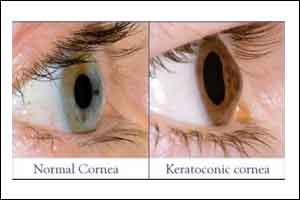- Home
- Editorial
- News
- Practice Guidelines
- Anesthesiology Guidelines
- Cancer Guidelines
- Cardiac Sciences Guidelines
- Critical Care Guidelines
- Dentistry Guidelines
- Dermatology Guidelines
- Diabetes and Endo Guidelines
- Diagnostics Guidelines
- ENT Guidelines
- Featured Practice Guidelines
- Gastroenterology Guidelines
- Geriatrics Guidelines
- Medicine Guidelines
- Nephrology Guidelines
- Neurosciences Guidelines
- Obs and Gynae Guidelines
- Ophthalmology Guidelines
- Orthopaedics Guidelines
- Paediatrics Guidelines
- Psychiatry Guidelines
- Pulmonology Guidelines
- Radiology Guidelines
- Surgery Guidelines
- Urology Guidelines
Oral corticosteroid supplementation improves clinical outcomes of isolated corneal bee sting injury

Dr.N.Venkatesh Prajna and associates of Aravind Eye Hospital, Madurai, Tamil Nadu conducted a study is to describe the presenting features, management strategies, and clinical outcome following bee sting injury to the cornea.The study has been published in Indian Journal of Ophthalmology.
The study included retrospective case series involving 11 eyes of 11 patients with corneal bee sting injuries who presented over a period of 2 years. Nine of these 11 eyes had the presence of intact bee stinger in the cornea, which was removed immediately under an operating microscope and sent for microbiological and histopathological evaluation. The patients were managed as per the individual treatment protocol of the respective treating physicians.
It was found that Six eyes (54.5%) had a good clinical outcome (best-corrected visual acuity [BCVA] >20/40) with medical therapy alone with no need for surgical intervention. Five eyes (45.5%) had a poor clinical outcome (BCVA <20/40) with medical therapy and required surgery; of which three required a combined penetrating keratoplasty with cataract surgery, while one required isolated cataract surgery and one underwent penetrating keratoplasty. Glaucoma was present in 3/5 eyes undergoing surgery, one of which required a trabeculectomy. Five of the six eyes who had a good clinical outcome with medical therapy alone had been treated with concomitant oral steroids, along with topical antibiotic-steroid combination therapy.
The researchers therefor concluded that Oral corticosteroid supplementation to the topical steroid antibiotic treatment in patients with corneal bee sting injury where corneal involvement and the anterior reaction is severe at presentation or inflammation not ameliorating with topical steroids alone prevents serious vision-threatening complications such as corneal decompensation, cataract, and glaucoma.
For further reference log on to:
http://www.ijo.in/text.asp?2018/66/2/262/224087

Disclaimer: This site is primarily intended for healthcare professionals. Any content/information on this website does not replace the advice of medical and/or health professionals and should not be construed as medical/diagnostic advice/endorsement or prescription. Use of this site is subject to our terms of use, privacy policy, advertisement policy. © 2020 Minerva Medical Treatment Pvt Ltd